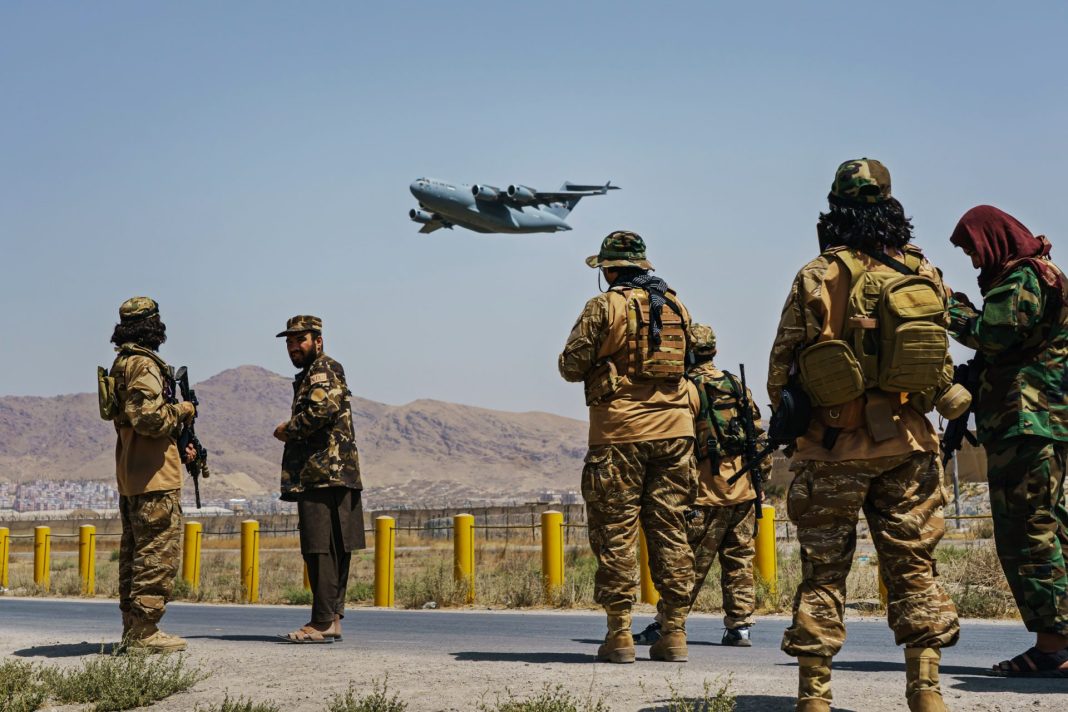The rare testimony by the two retired generals publicly exposed for the first time the strain and differences the military leaders had with the Biden administration in the final days of the war. Two of those key differences included that the military had advised that the US keep at least 2,500 service members in Afghanistan to maintain stability and a concern that the state department was not moving fast enough to get an evacuation started.
The remarks contrasted with an internal White House review of the administration’s decisions which found that Joe Biden’s decisions had been “severely constrained” by previous withdrawal agreements negotiated by former president Donald Trump and blamed the military, saying top commanders said they had enough resources to handle the evacuation.
Thirteen US service members were killed by a suicide bomber at the Kabul airport’s Abbey Gate in the final days of the war, as the Taliban took over Afghanistan.
Thousands of panicked Afghans and US citizens desperately tried to get on US military flights that were airlifting people out. In the end, the military was able to rescue more than 130,000 civilians before the final US military aircraft departed.
That chaos was the end result of the state department failing to call for an evacuation of US personnel until it was too late, both former joint chiefs chairman Gen Mark Milley and US central command retired Gen Kenneth “Frank” McKenzie told the House foreign affairs committee.
“On 14 August the non-combatant evacuation operation decision was made by the Department of State and the US military alerted, marshalled, mobilized and rapidly deployed faster than any military in the world could ever do,” Milley said.
But the state department’s decision came too late, Milley stated.
“The fundamental mistake, the fundamental flaw was the timing of the state department,” Milley continued, adding, “That was too slow and too late.”
Evacuation orders must come from the state department, but in the weeks and months before Kabul fell to the Taliban, the Pentagon was pressing the state department for evacuation plans, and was concerned that the state department was not ready, McKenzie said.
“We had forces in the region as early as 9 July, but we could do nothing,” McKenzie said, calling the state department’s timing “the fatal flaw that created what happened in August”.
“I believe the events of mid and late August 2021 were the direct result of delaying the initiation of the [evacuation] for several months, in fact until we were in extremis and the Taliban had overrun the country,” McKenzie added.
Milley was the nation’s top-ranking military officer at the time, and had urged the US president to keep a residual force of 2,500 forces there to give Afghanistan’s special forces enough back-up to keep the Taliban at bay and allow the US military to hold on to Bagram Air Base, which could have provided the military additional options to respond to Taliban attacks.
Biden did not approve the larger residual force, opting to keep a smaller force of 650 that would be limited to securing the US embassy. That smaller force was not adequate to keeping Bagram, which was quickly taken over by the Taliban.
The Taliban have controlled Afghanistan since the US departure, resulting in many dramatic changes for the population, including the near-total loss of rights for women and girls.
The White House’s 2023 internal review further appeared to shift any blame in the 26 August 2021 suicide bombing at Hamid Karzai international airport, saying it was the US military that made one possibly key decision.
“To manage the potential threat of a terrorist attack, the president repeatedly asked whether the military required additional support to carry out their mission at HKIA,” the 2023 report said, adding: “Senior military officials confirmed that they had sufficient resources and authorities to mitigate threats.”
